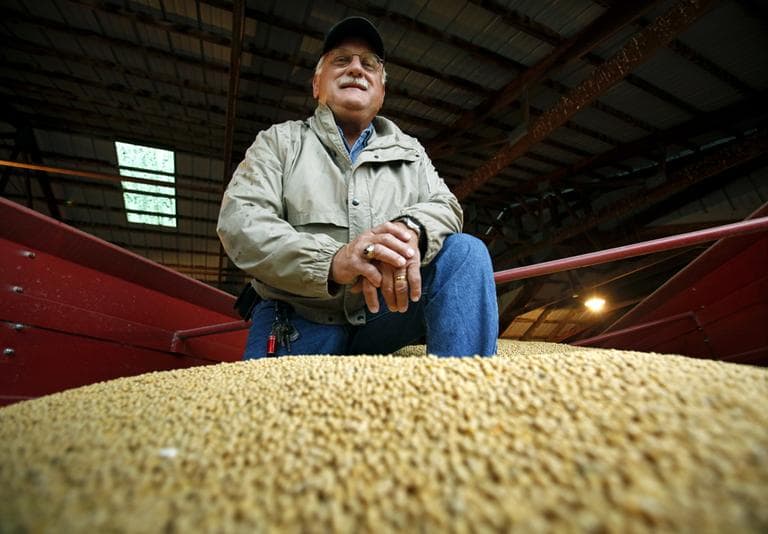Advertisement
Labeling GMO
ResumeCalifornia will vote in November on whether to require explicit labeling of genetically modified foods. We’ll look at what that would mean for the state and the country.

For more than a decade, most cereals, snack foods, salad dressings we eat in the USA have contained genetically-engineered ingredients. Corn or soy beans whose DNA has been tweaked in the lab. Genetically-modified organisms – GMO. More are on the way.
Supporters call them safe and necessary. Opponents call them Frankenfood. On November 6th, a vote in California will decide if Californians get to know what they’re eating. It would require labeling of all genetically-engineered material in food. If it happens there, it may go national. There’s a fight.
This hour, On Point: labeling GMO.
-Tom Ashbrook
Guests
Marc Lifsher, reporter at the Los Angeles Times.
Doug Gurian-Sherman, senior scientist with the Food and Environment Program at the Union of Concerned Scientists.
Nicholas Kalaitzandonakes, director of the Center for Economics and Management of Agrobiotechnology at the University of Missouri’s College of Agriculture.
Kent Bradford, Director of the Seed Biotechnology Center at University of California, Davis.
From Tom's Reading List
L.A. Times "Agricultural biotechnology companies have been pouring hundreds of millions of dollars into developing plants that can withstand the effects of a prolonged dry spell. Monsanto Co., based in St. Louis, has received regulatory approval for DroughtGard, a corn variety that contains the first genetically modified trait for drought resistance."
Huffington Post "More than 40 other nations, including the entire European Union, already require disclosure. ButMonsanto and its allies are dedicated to keeping consumers in the dark and are pouring tens of millions of dollars into a disinformation campaign intended to defeat Prop 37."
Christian Science Monitor "Another multimillion-dollar fight over a ballot initiative – with big implications for the country – is brewing here in California. The initiative, which is on the ballot this November, has a mouthful of a name: the “California Right to Know Genetically Engineered Food Act."
This program aired on September 19, 2012.